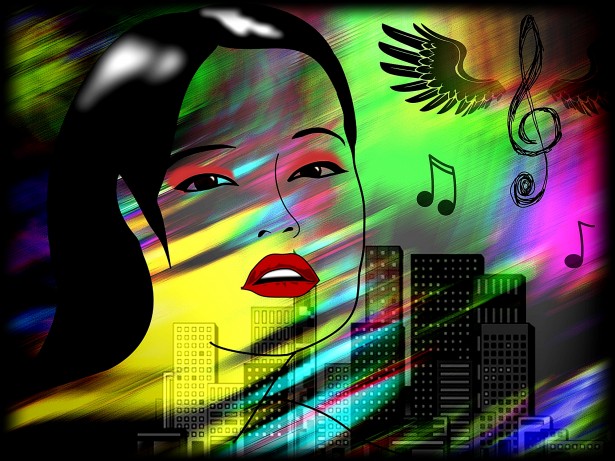Ah, Music Therapy, indeed, what IS it?
When I was in school we were encouraged to write an elevator speech. The task was to sum up all of the diverse applications of music therapy before our listener's eyes glazed over. We were also encouraged to use the word empirical or neuroscience so they understood this was a serious, academic field. I came up with something like "Music therapists are health care professionals that use music as a tool for improving physical, emotional and cognitive health. We design music experiences based on the most recent advances in neuroscience." I tried it once and burst out laughing, how obnoxious! My laughter did lead to a second question,
"Huh?!"
I get sort of excited about this stuff so if someone asks a second question I lose all control and launch into a one-sided epic marathon of academic garble.
(I am also prone to hyperbole.)
I think the best way to begin to understand music therapy is to 1) start by noticing the role of music in your own life - how does it form, inform or heal your relationships 2) notice what it feels like before and after listening to or making music 3) observe what kinds of memories, thoughts and emotions arise from different music triggers.
From there you have to imagine how someone could use that material in an intentional way to guide you toward your health and wellness goals... be it stress relief, working through unconscious emotional conflict (yes, you may lay yourself down on the couch if you wish) pain management (I'm tempted to launch into a marathon on that one) etc... and that isn't even the tip of the iceberg.
As a board certified music therapist, it is in my code of ethics to promote an understanding of music therapy.. I like to write and I like to make myself laugh while I'm doing so., so I choose to do that through stories. Hopefully, you will laugh enough to want to read more.
So, here's my first anecdote - not a funny one - but it affected me in a profound way - enough to motivate me to educate the public for years to come.
SO, I was working at a geriatric care facility. Most of the residents were in wheelchairs. Many were still mentally vibrant even if they were sometimes confused about present time and place. With some it was difficult to tell how attuned they were to their surroundings and the music. I would keep an eye out for tiny finger movements or an effort-ful lift of an eyebrow.
One day I was working with a large group by reproducing favorite Broadway hits. I did it Karaoke style so I could walk through the crowd and acknowledge each person individually or re-orient them to the music. Some of the people in the group were new to me. One individual was rolled into the back of the room next to his wife. His head was down. I was told to leave him be. That he was there because it was a chance for his wife to see him. (The residents don't share rooms with their spouses.) I interpreted that to mean he wasn't really there any more. But I didn't know so I gave it a college try.
I got down low so I could see his face. I grabbed his hands and gently moved them as I not so gently sang "I Could Have Danced All Night" right into his face. Let's not forget that I'm a trained opera singer so, he could hear me.
I moved on after a moment and continued circling through the room, circling back to him as I did with everyone else.
At the end of the session my boss brought me back to him saying he wanted to see me.
Crouching down again I heard him say something. I thought he said "It is nice to meet you." So, I smile and said, "It's nice to meet you, too."
"No, Elizabeth, " my boss corrected "He said, it's nice to be seen."
Quality of life, baby. Connection. Dignity. That is what it's all about. Stick that in your elevator pipe.
Regardless of your health and wellness goals, Music Therapy is a powerful tool well worth exploring.
According to the American Music Therapy Association, Music Therapy is the clinical and evidence-based use of music interventions to accomplish individualized goals within a therapeutic relationship by a credentialed professional who has completed an approved music therapy degree program. Music therapy interventions can be designed to:
- Promote Wellness
- Manage Stress
- Alleviate Pain
- Express Feelings
- Enhance Memory
- Improve Communication
- Promote Physical Rehabilitation
Research in music therapy supports its effectiveness in a wide variety of health care and educational settings. (American Music Therapy Association).
To learn more about music therapy visit Gathering Drum at http://gatheringdrum.com
Article Source: http://EzineArticles.com/?expert=Elizabeth_C_Cook
http://EzineArticles.com/?What-Is-Music-Therapy?&id=7424060
Photo courtesy of Sabine Sauermau


Thank you!
Please share Piano Wizard with your friends and help spread the joy.